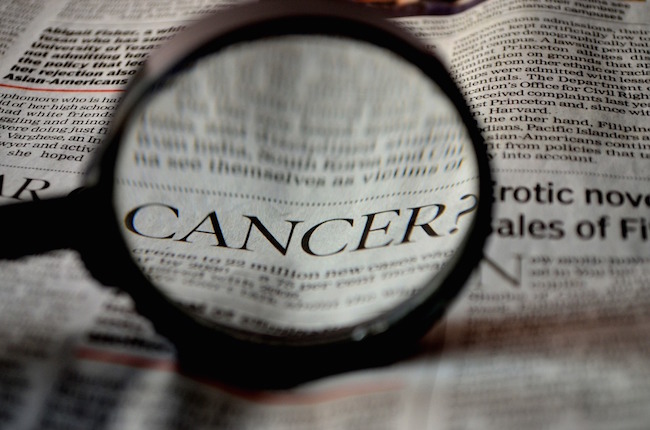Scientists have learned how to interrupt cancer cell growth; allowing them to prevent cancer’s adaptation to treatment by: Rhonda Johansson – Natural News
It has been 16 years since the human genome was decoded — an accomplishment that scientists hoped would someday prove useful in cancer therapy. There was an optimistic, if not naive, belief that we could simply “switch off” cancer-causing genes. Nevertheless, oncologists are still encountering problems with this concept more than a decade later. A better option, recent research suggests, may be in a new approach called “macrogenomics” which looks at genes in how they are expressed rather than represented.
Professor Vadim Backman from Northwestern University led a fascinating new study which suppressed how cancer cells translate themselves. This is not a new treatment for cancer; rather a new strategy to complement existing therapies. Backman’s approach is simple: By regulating a cancer cell’s ability to adapt to treatment, current technologies would be able to stop cancer growth completely.
The treatment works by controlling a group of macromolecules (consisting of DNA, RNA, and various proteins) called chromatin. These molecules facilitate how cancer cells express themselves, including how they evolve to withstand treatment. When chromatin is disrupted, cancer cells are unable to adapt and become more vulnerable to being killed off by conventional medical treatments.
Animal models that used this strategy have already shown great potential in ceasing cancer proliferation.
“If you think of genetics as hardware, then chromatin is the software,” explained Backman. “Complex diseases such as cancer do not depend on the behavior of individual genes, but on the complex interplay among tens of thousands of genes. By targeting chromatin, we can modulate global patterns in gene expression.”
This is a brilliant way to address an already confounding situation. Backman’s insight into medical treatment can mean that true cancer therapy — one that completely eliminates cancer cells — could be near. His research stops the adaptive behavior of cancer cells in order to boost the efficacy of current treatments. Various experiments manipulating chromatin have shown that cancer cells show predictable changes in gene expression. Chromatin that was more ordered and densely packed covered cells that were more likely to die from cancer treatment.
To date, Backman’s study focused on altering chromatin to increase the effectiveness of chemotherapy. However, it is hoped that his study may also prove useful for other, less toxic cancer treatments.
Chromatin alteration may also prove useful for treatment plans for other diseases such as Alzheimer’s disease and atherosclerosis.
Backman concludes: “Genetic changes are permanent, but this type of modulation is more like software. By definition, it’s reversible. You could reprogram a neuron, and then remove the stimulus and allow it to go back to its normal state. If chromatin is software, then we are saying there is room to write new codes.”
Why nutrition is still the better option
The last statement of Backman has heavy implications, whether you’ve realized it or not. The lofty goal of stopping cancer in its tracks by disrupting chromatin sounds like a good idea at first, but what happens afterwards? If we are to take Backman’s conclusion as a indication, gene manipulation is the next step.
Cancer is indeed a burdensome disease, but there are simpler ways to battle the illness. The key is nutrition. There are countless stories of cancer patients curing themselves by simply changing their diet. (Related: Food quality found to impact risk of cancer regardless of weight: Choosing natural foods over processed foods keeps the nutrients-to-calories ratio properly balanced.)
Food determines your internal environment, which impacts the “complex interplay” between genes. Regardless of where macrogenomics takes us, following a healthy lifestyle is still the better option.




